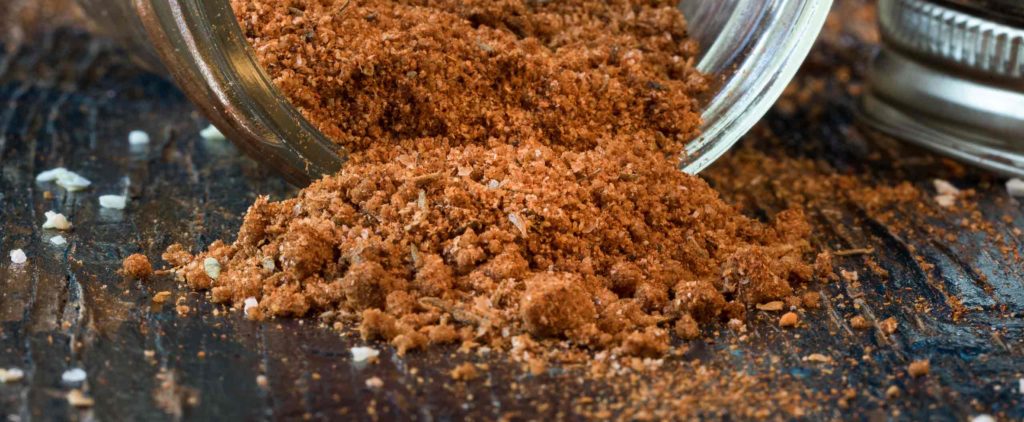Spring is here, and I'd like to take this opportunity to offer you a panorama of the Rub(s)...for evenings or, of course, for lunch 😉
What is a rub?
Rub means to rub. So we're talking about spices for rubbing... on meat or fish. What comes to mind? Yes! ham, which is salted and then rubbed before smoking: rub's primary use; or steak au poivre, which is also a rub based on pepper mignonette.
We French are actually rather skittish about spices; salt for pork, pepper for steak, these are however two great Rubs staples, add sugar and this trio will be found in almost every base.
It all started in the southern United States, with its smoking and barbecues (bbq). A discovery dating back 500 years to the conquest of America by the Spanish and Portuguese, a cooking process used by an Amerindian ethnic group: barbacoa.
The word barbecue first appeared in England in the late 17th century, and a little later in France. The technique of cooking with this process took off in the 19th century in North America, mainly in the South (California, Texas, New Mexico). It's easy to imagine barbecues moving with the conquest of the West.

It was only after the war, in the 1950s, that the principle of this type of cooking became widespread.
But back to the Rubs: salt-pepper-sugar is the base, and you can add just about anything you like in the way of spices, herbs and aromatics. There's no limit to creativity, it's all a matter of taste.
When it comes to Rubs, you have to be careful about what you're trying to achieve in the end. A marinade? Smoking? Barbecuing? Both or all three? That's why our rubs contain very little salt , because if you decide to make an improvised "fast rub" with friends, the proportion of salt will be completely different from that used for a smoking rub.
Smoking Rub:
The principle is simple: impregnate the flesh of the meat with a mixture of salt, sugar and spices to create a "crust" of spices around the smoked piece. In this case, the proportion of salt must be higher, as the meat is cured and then smoked for a longer maturing period.
Rub de marinade:
Here, the Rub mixture is added to a fatty substance (usually oil) and the meat or fish is left to soak for hours or even days. I'm always careful about using salt in marinades, as it tends to close the pores of the meat and make it firm. I always prefer to add salt afterwards, as the spices are already playing their role as flavor enhancers.
The barbecue rub:
There are two ways to do this: fast rubbing or marinade. The choice is yours, and the amount of salt is entirely up to you.
The different rubs developed :
" Original Texas Rub" with smoked paprika, garlic and onion (10 spices in all)
" Rub Do Brasil" Paprika, turmeric, oregano (8 spices)
"Caofé Rub" with roasted cocoa pods and ground coffee (5 spices)
"Rub de soirée" Smoked paprika, herbs, chilli, cumin (11 spices)
"Rub'Ancho", made with Ancho chilli pepper and cumin, is very similar to the base on which I make my homemade harissa.
"Tafraout Rub" Cumin, coriander, ras el hanout (20 spices) The special mechoui Rub, which, by the way, is the ancestor of Rub? Ibn Manzour, in his 13th-century Arab encyclopedia, mentions it several times...
->Consult the Organic Rubs page
